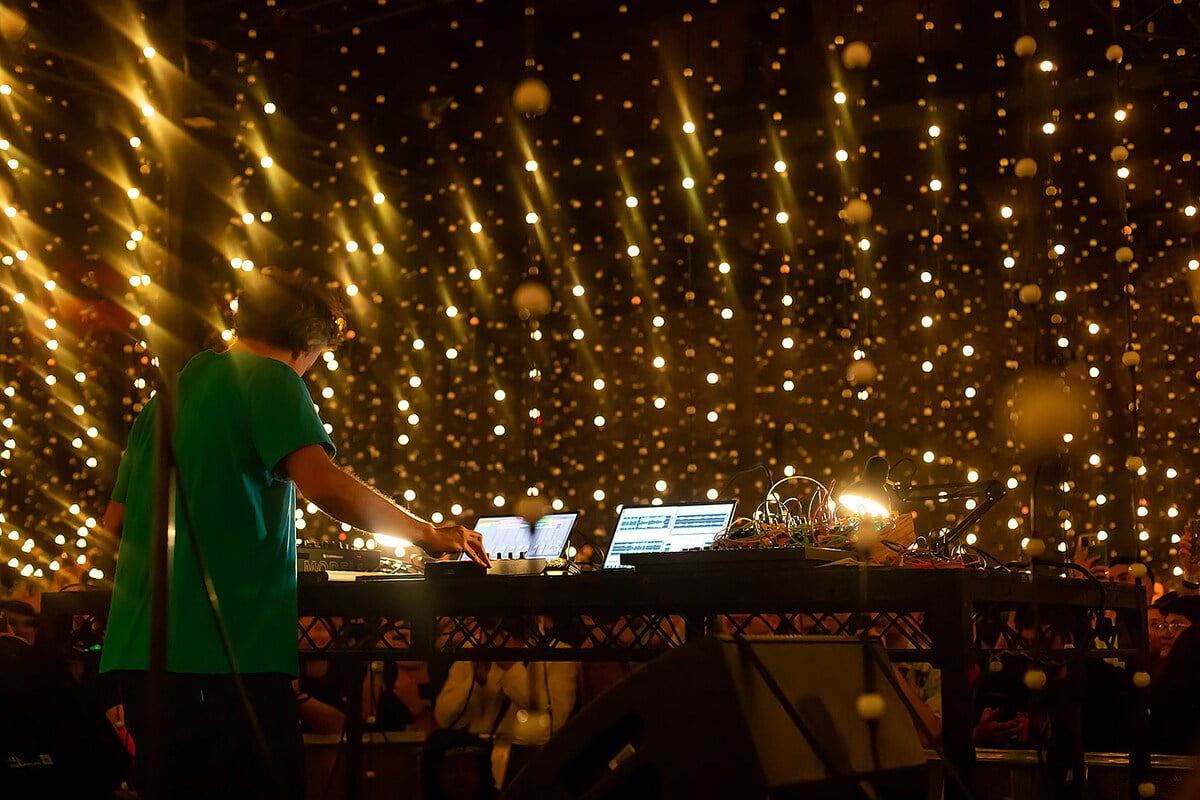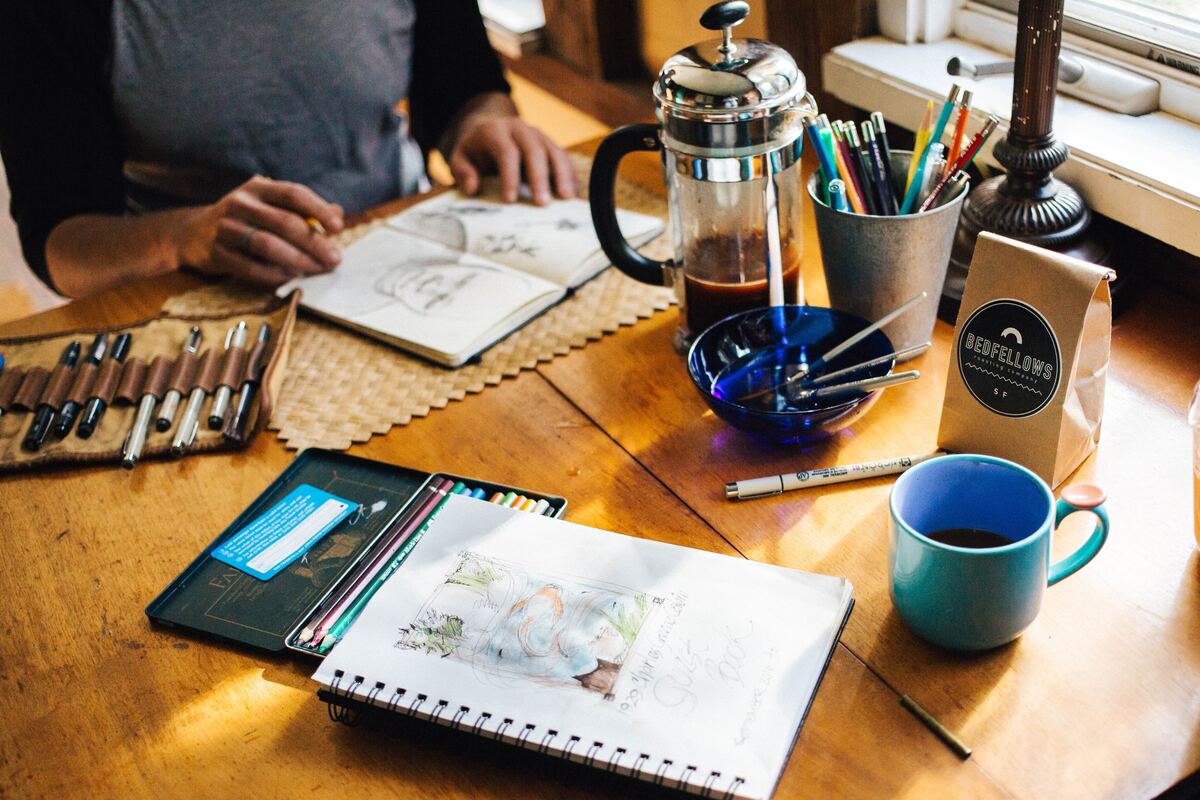Last month, my good friend Jay and I went to Meridian Hall in Toronto to see Andrew Huberman give a lecture titled, The Brain Body Contract.
Honestly, I had forgotten about the show entirely.
Jay had told me about it way back in December. I told him I was interested, but I didn’t realize he bought tickets.
Fast-forward nine months, and Jay sends me the following message:
“Let’s make a plan for tomorrow night. We’ve got the Andrew Huberman lecture!”
Ugh, totally slipped my mind.
I considered bailing altogether.
It had been a busy past month of travel. Over the prior 30 days, I’ve spent time in Toronto, Colorado, and Vietnam — and on top of it, I’d just recovered from a nasty head cold.
But, something inside of me told me that I should go. I’ve learned to listen to that gut feeling — it’s often right, and this time was no exception.
I’m so grateful that I went.
It was my first time seeing Huberman live, and while I wouldn’t call myself a superfan of his work, I’m continually impressed by both his knowledge and how humble he is (truly, the man is incredibly humble on stage, it’s genuinely admirable).
My biggest takeaway from the talk was Huberman sharing personal stories about himself and Rick Rubin (another person I have an immense amount of respect for), and how they both literally lay flat on the ground during the middle of the day to promote both creativity and nervous system health.
Coincidentally, and almost by accident, I’ve spent the past 4-6 months experimenting with this concept of getting horizontal during working hours, just to see how it impacted my ability to rest and recover.
A side effect of my experimentation is that I’ve found my creativity has skyrocketed.
I concur with both Huberman and Rubin completely — laying down for as little as 20 minutes during the middle of the day has made a profound impact to both my health and creativity.
However, obtaining this knowledge has been a hard fought battle…
I suffered a central nervous system breakdown in 2021
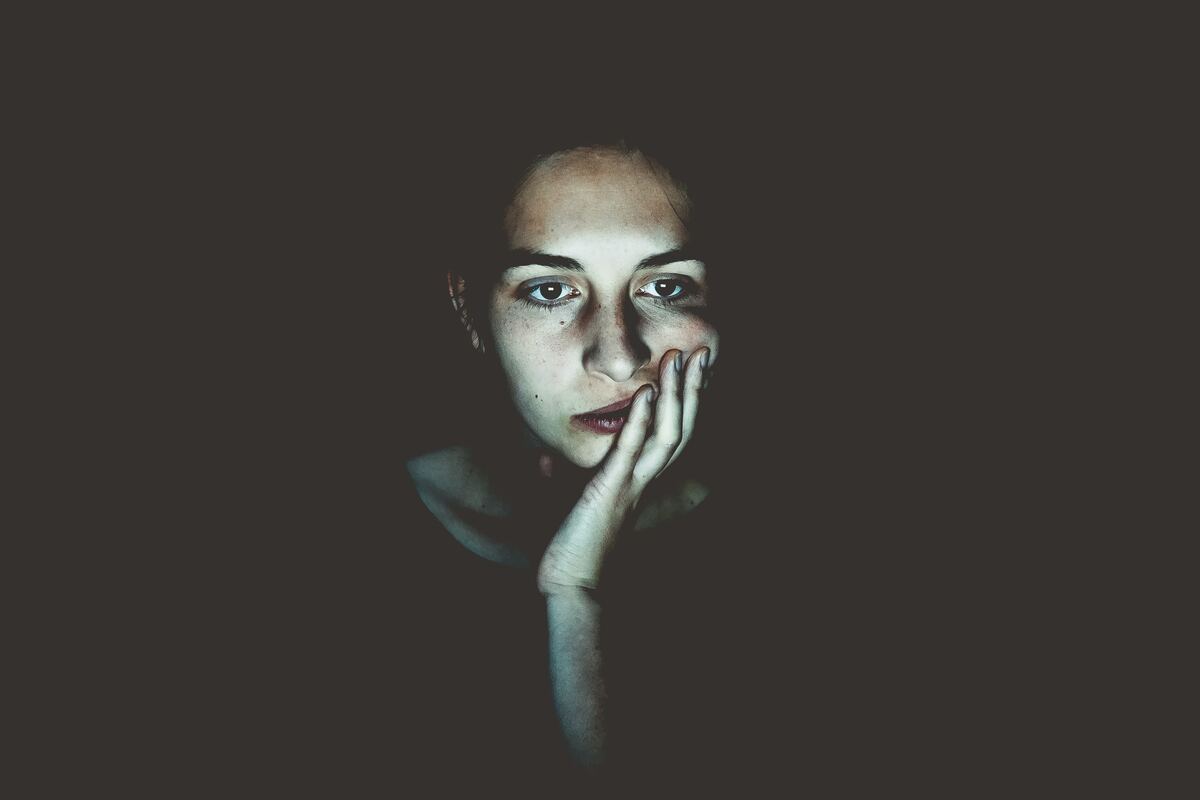 My nervous system breakdown in 2021 was one of the darkest periods of my life (image credit)
My nervous system breakdown in 2021 was one of the darkest periods of my life (image credit)
I haven’t publicly talked about this much, but back in late-2021, I suffered a near-complete central nervous system breakdown, to the point where I almost had to be hospitalized.
The breakdown came after placing an unbelievable, practically human amount of mental, physical, and emotional stress on my body for nearly a year straight.
For context, in early-2021 I decided to sell PyImageSearch my business that I founded and was CEO of for eight years.
The decision to sell was easy — the actual selling process…not so much.
I’ll write an entire article on what it was like selling PyImageSearch later (likely multiple articles), but for the time being, I’ll simply say that:
- I wasn’t sleeping well. Sleep came in one or two hour bursts; it was near impossible for me to make it through the entire night.
- I was stressed out. PyImageSearch was (and still is) a successful business, kicking off impressive, high-margin revenue numbers each year. It felt like the stakes were high (because they were), and as a result, I put a ridiculous amount of pressure on myself to have a successful acquisition.
- I couldn’t keep weight on. I love working out. I’m also blessed with a very fast metabolism. Typically, my athletic physique is a huge positive for me — but under high-stress, my appetite goes to zero, and as a result, I drop weight quickly. My macros were a mess, and I have no doubt that I was malnourished.
If selling the business wasn’t enough stress, I was also training for an incredibly challenging physical endeavor.
Perhaps I’ll write an article on exactly what I was training for at a future date, but for the time being, let’s just say that it’s a training program with a 95%+ attrition rate, so it was insanely physically and mentally demanding.
My training regiment included two-a-day strength training (once at 6AM, then again at 4PM), intensive cardio, and running many miles per week with a weighted rucksack.
The combined stress of over-training, selling the business, and lack of proper rest/nutrition caused my nervous system to collapse.
For about six months, I only had enough energy to:
- Get out of bed
- Do a very short workout (typically just bodyweight, and a bit of core/abs)
- Make breakfast
- Walk the dog
- Maybe go get a coffee at the cafe down the street
After that, I needed a 30 minute nap, despite only being awake for 4-5 hours.
Rediscovering balance through the power of simply laying down
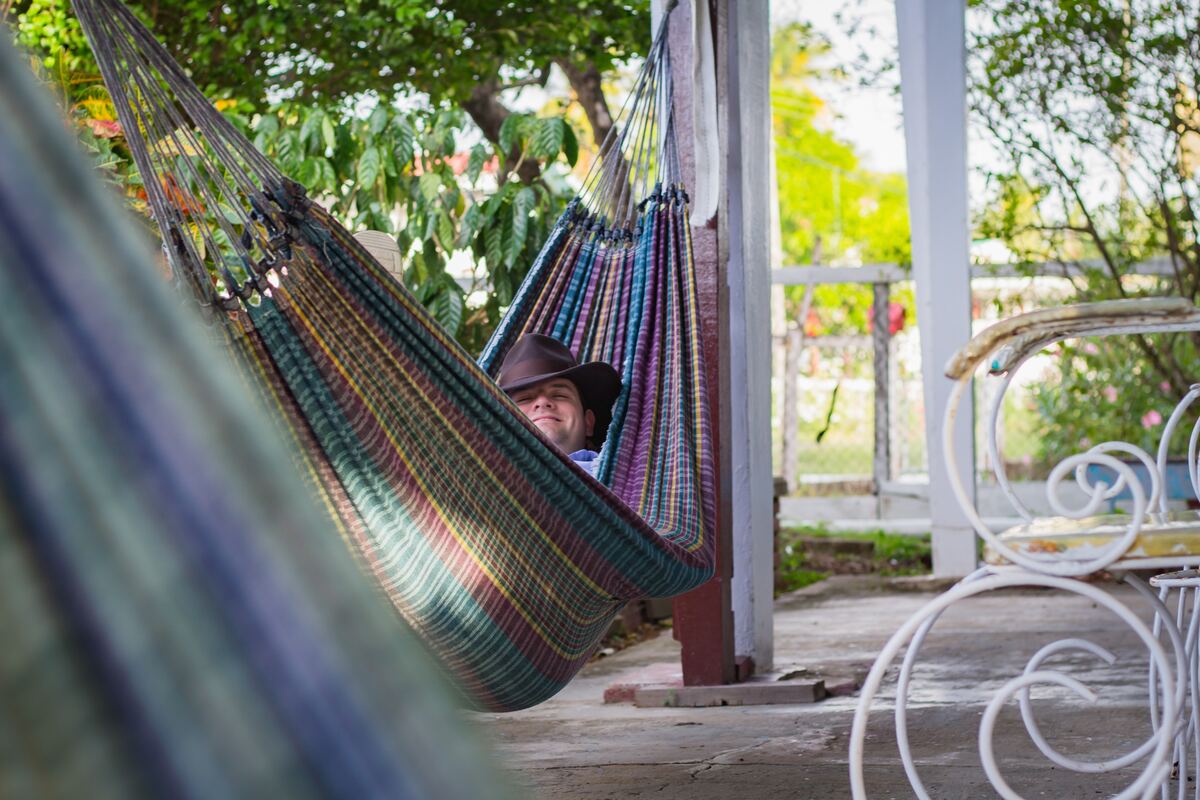 The simple act of laying down and not moving for 30-60 minutes per day has helped my recovery tremendously (image credit)
The simple act of laying down and not moving for 30-60 minutes per day has helped my recovery tremendously (image credit)
Resetting my central nervous system has been quite the challenge, and has taken well over a year at this point.
Honestly, I’m still not 100% — I’m operating at 75-80% of what my pre-2021 capacity was.
Through my self-experimentation over the past six months, I’ve found that simply getting my feet off the ground and laying down, for as little as 15-20 minutes at a time, has been profoundly helpful in my recovery.
I use my Garmin Fenix watch to track my biometrics throughout the day, and during this horizontal rest period, I’m typically able to recover anywhere between 3-10%.
That doesn’t sound like much, but it’s a huge deal to someone who is recovering from a nervous system shutdown.
During this time when I’m laying down, I’m not napping. My brain is awake and alert, but my body is completely still, like in a Shavasana yoga pose.
It appears that minimizing motor function, while still allowing myself to think and process, is allowing my nervous system to rewire.
I’m not entirely sure about the science on this one, but my creativity has increased as well.
Anecdotally, both Huberman and Rubin have experienced something similar.
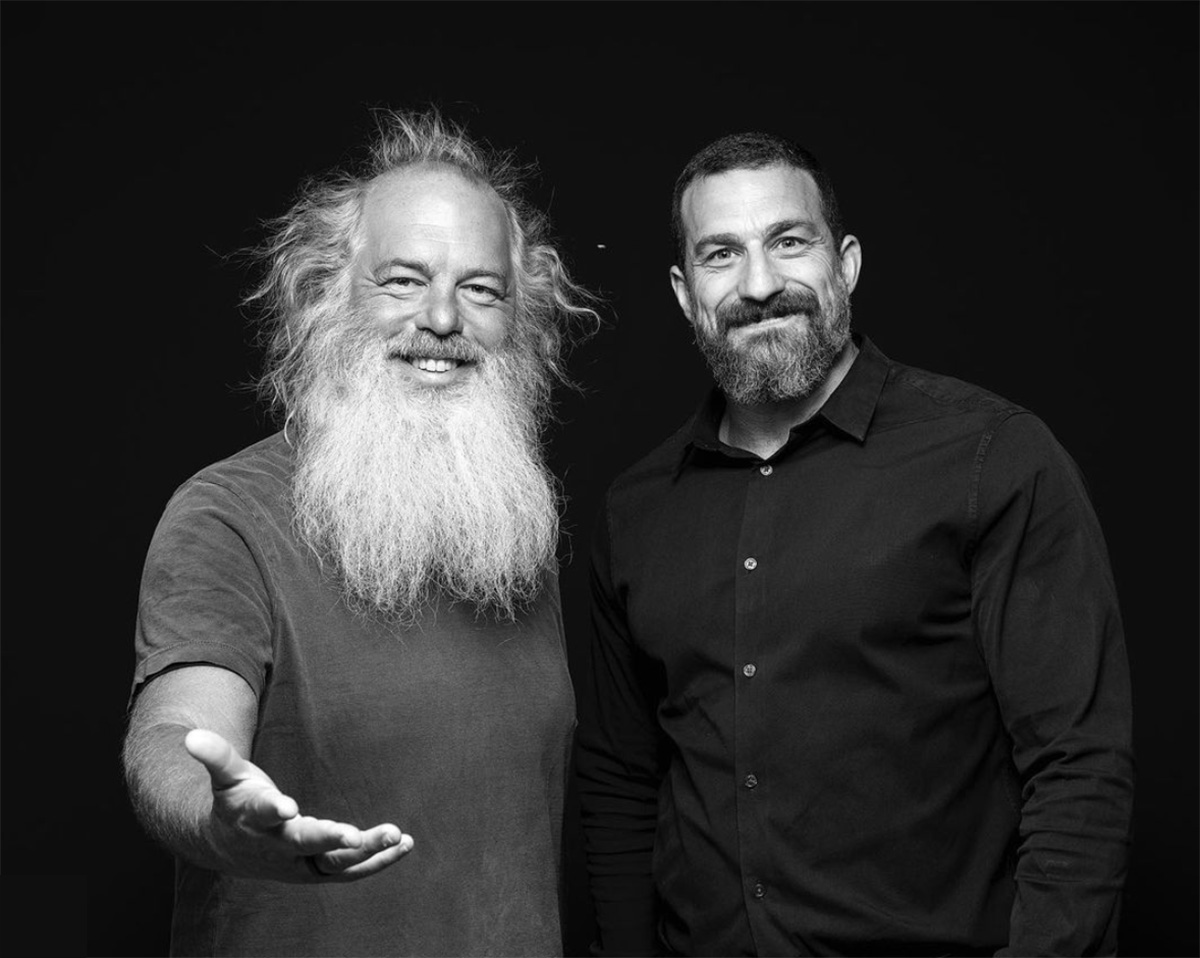 Rick Rubin (left) and Andrew Huberman (right) (image credit)
Rick Rubin (left) and Andrew Huberman (right) (image credit)
My favorite part of the Huberman lecture was when he recounted an experience he shared with Rick Rubin earlier this year.
Rubin is a famed American record executive and producer, producing records for famed acts including the Beastie Boys, Run-DMC, Public Enemy, Slayer, Red Hot Chili Peppers, Weezer, Linkin Park, Rage Against the Machine, and many others.
The guy is an absolute legend in the music industry, and is renowned for his unbridled creativity — and perhaps more importantly, his ability to tease out genius from others.
Rubin has also authored my favorite book of the past decade, The Creative Act: A Way of Being, that distills much of what he’s learned about creativity over his 40 year career in the music industry.
When Huberman visited Rubin at his home in Malibu, California, he was surprised that Rubin would often spend 3-5 hours per day simply laying on his back.
Not napping. Fully aware. Just not moving his body an inch.
I instantly related both Huberman and Rubin’s experience to my own — clearly there is something here.
Shifting my perspective from “doing” to “being”
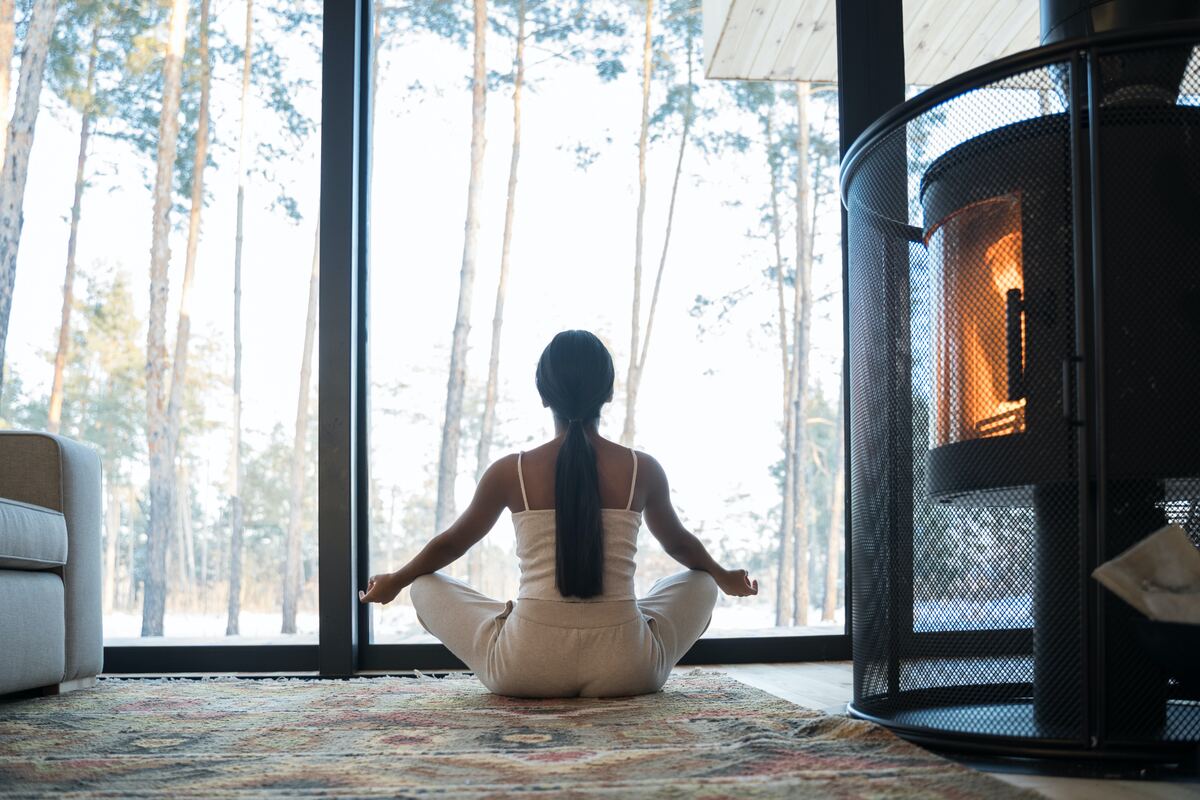 Doing expends energy, while being conserves it, waiting for the right opportunity (image credit)
Doing expends energy, while being conserves it, waiting for the right opportunity (image credit)
In my teens and twenties, I tended to consider myself as a “hardcore doer” and an “execution master” — I prided myself on my ability to execute, get shit done, and move the needle.
Genuinely, I believe it was my ability to hustle and execute that allowed me to bootstrap PyImageSearch from zero to a successful business that was later acquired.
My thirties are different though — and I sense that a large shift has taken place where I focus less on doing, and more on simply being and existing.
Over the past six months, I’ve often felt bad, chastising myself for not working more, not getting more shit done, “like I used to”.
It’s not a fair criticism, because I clearly recognize how much the practice of simply laying down for 20-30 minutes in the middle of the day has helped me become more creative, and more importantly, give my body a break and obtain some much needed rest (rest that I never got in my teens and twenties, and certainly not post-acquisition).
Not only does my internal, mental stance on rest need to change, but it’s become obvious to me that my own nervous system needs further rewiring, optimizing for more rest and more horizontal time.
Setting intentions and moving forward
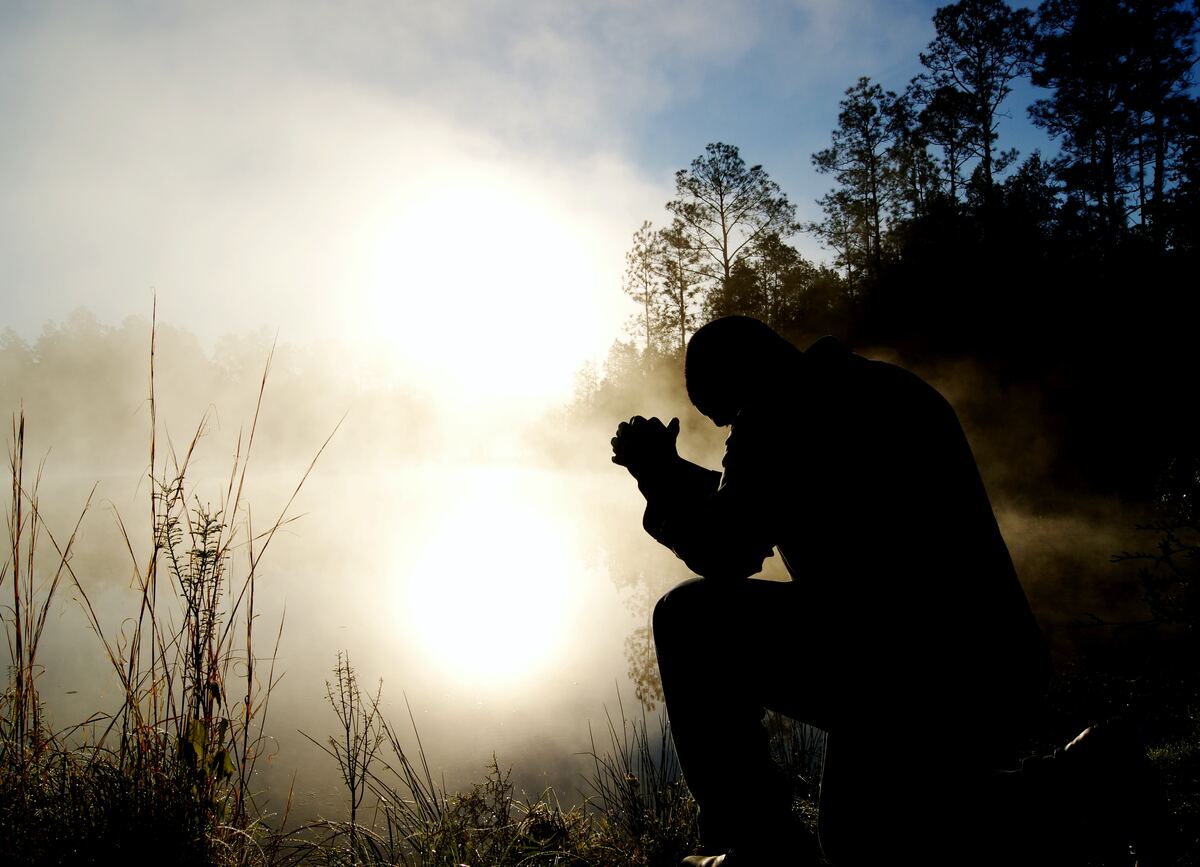 Embracing a life of being (image credit)
Embracing a life of being (image credit)
After hearing Huberman’s talk, I’m setting the intention to no longer “feel bad” about spending a couple hours per day (particularly during the middle of the work day) simply laying on my back, mind fully awake, body completely still.
The practice has done wonders for me over the past six months, despite my internal guilt trip.
I’m incredibly excited to further my practice of literally laying down on the job — this time with less self-reproach to both myself and my body.
I genuinely believe that this practice will not only help my nervous system further reset and recover, but also make me that much more creative.
Takeaways
- Listening to intuition: I almost bailed on Huberman’s lecture, but my gut feeling urged me to attend, a decision I’ll be forever thankful for.
- Rediscovery of horizontal healing: Both Huberman and Rick Rubin practice laying flat during the work day to enhance creativity and rest. Coincidentally, I’ve been experimenting with this method and have witnessed a surge in my own creative output.
- Past challenges: In 2021, I faced a severe central nervous system breakdown, a result of overwhelming stress from selling my business, rigorous physical training, and inadequate rest.
- Laying, not napping: While in a state similar to Shavasana yoga pose, my mind remains alert. An alert mind, coupled with minimal motor function, seems to promote neuroplasticity, improve neurological recovery, and heighten creativity.
- Personal evolution: I once considered myself a “doer” and “execution master”, capable of tackling any task through sheer force of will and discipline. However, now that I’m in my thirties, my approach to life and work is shifting from relentlessly “doing” to simply “being”. I’m not opposed to this change, and in many ways I’m grateful for it, but it’s taking some time to adjust to.
- Embracing the stillness: My newfound understanding of laying and resting is guiding me to consciously incorporate these rest periods into my day without guilt. I’m confident in the benefits the practice brings to my well-being and creative spirit.
Adrian Rosebrock. “Boost Creativity and Reset Your Nervous System by Laying Down on the Job”, NaturalDisasters.ai, 2023, https://naturaldisasters.ai/posts/boost-creativity-reset-nervous-system/.
@incollection{ARosebrock_BoostCreativityLayingDown,
author = {Adrian Rosebrock},
title = {Boost Creativity and Reset Your Nervous System by Laying Down on the Job},
booktitle = {NaturalDisasters.ai},
year = {2023},
url = {https://naturaldisasters.ai/posts/boost-creativity-reset-nervous-system/}
}
AI generated content disclaimer: I’ve used a sprinkling of AI magic in this blog post, namely in the “Takeaways” section, where I used AI to create a concise summary of this article. Don’t fret, my human eyeballs have read and edited every word of the AI generated content, so rest assured, what you’re reading is as accurate as I possibly can make it. If there are any discrepancies or inaccuracies in the post, it’s my fault, not that of our machine assistants.
Header photo by Dragos Gontariu on Unsplash

 My nervous system breakdown in 2021 was one of the darkest periods of my life (
My nervous system breakdown in 2021 was one of the darkest periods of my life ( The simple act of laying down and not moving for 30-60 minutes per day has helped my recovery tremendously (
The simple act of laying down and not moving for 30-60 minutes per day has helped my recovery tremendously ( Rick Rubin (left) and Andrew Huberman (right) (
Rick Rubin (left) and Andrew Huberman (right) ( Doing expends energy, while being conserves it, waiting for the right opportunity (
Doing expends energy, while being conserves it, waiting for the right opportunity ( Embracing a life of being (
Embracing a life of being (
